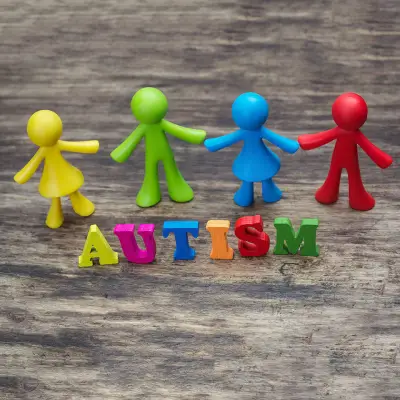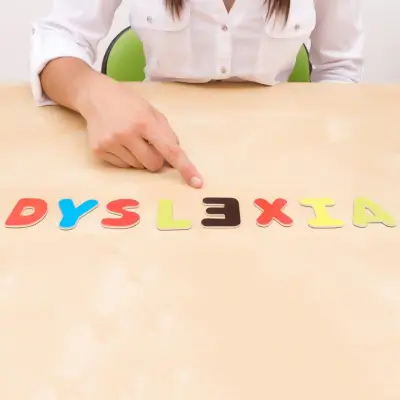Attention Deficit Hyperactivity Disorder (ADHD) can make daily life feel chaotic and overwhelming. Many people with ADHD struggle with maintaining focus, staying organised, and managing impulsive behaviours.
While medication and behavioural therapies are common treatments, an increasing number of people are turning to meditation to help manage ADHD symptoms. But how effective is meditation for ADHD, and what techniques are most beneficial? This guide explores these questions and provides practical tips for incorporating meditation into your routine.
Jump to:
- Understanding ADHD and Its Challenges
- How Meditation Affects the ADHD Brain
- Is it Difficult for People With ADHD to Meditate?
- The Benefits of Meditation for ADHD
- How to Meditate for ADHD
- Integrating Mindfulness into Daily Life
- Frequently Asked Questions About Meditation for ADHD
- Enhance Your Understanding of ADHD for £29
Understanding ADHD and Its Challenges

ADHD is a neurodevelopmental disorder characterised by inattention, hyperactivity, and impulsivity. These symptoms can vary widely but often lead to difficulties in school, work, and personal relationships. Common challenges include:
- Trouble focusing on tasks
- Difficulty staying organised
- Impulsivity and poor decision-making
- Restlessness and hyperactivity
Given these challenges, finding effective strategies to manage ADHD is essential for improving quality of life.
How Meditation Affects the ADHD Brain
Research suggests that meditation can have a positive impact on brain function. Studies have shown that meditation can increase grey matter in areas of the brain associated with attention, memory, and emotional regulation. For those with ADHD, these changes can translate into improved cognitive function and emotional stability.
Recommended for you!
Best SellersIs it Difficult for People With ADHD to Meditate?
Meditation can be challenging initially due to difficulties with focus and restlessness. However, starting with guided meditations and incorporating movement can make it easier. Patience and regular practice will help improve meditation skills over time.
The Benefits of Meditation for ADHD
Meditation is a practice that involves focusing the mind and eliminating distractions. For those with ADHD, meditation can offer several benefits:
- Improved Focus: Regular meditation helps train the mind to concentrate on a single point of focus, which can enhance overall attention span. This increased ability to focus can be especially beneficial in academic and work environments where sustained attention is required.
- Reduced Hyperactivity: Meditation promotes relaxation and calmness, helping to manage hyperactive behaviours. This can decrease restless movements and fidgeting, making it easier to engage in tasks that require stillness and concentration.
- Enhanced Emotional Regulation: Meditation encourages mindfulness, which can lead to better control over emotions and impulsive reactions. This heightened emotional awareness allows people to respond to situations more thoughtfully rather than react impulsively.
- Better Sleep: Many people with ADHD experience sleep difficulties. Meditation can improve sleep quality by calming the mind and reducing the mental chatter that can interfere with restful sleep.
- Increased Self-Awareness: Meditation fosters a deeper understanding of yourself. This increased self-awareness can help people recognise their own patterns of behaviour and thought, leading to better self-management.
- Improved Decision-Making: Meditation can improve decision-making skills by enhancing focus and emotional regulation. This is particularly helpful for people with ADHD who may struggle with impulsive decisions.
- Greater Patience: Regular meditation practice can cultivate patience, allowing individuals to approach challenges and setbacks with a more measured and calm perspective.
- Enhanced Memory: Meditation can improve working memory, which is often a challenge for those with ADHD. Better working memory supports tasks such as following instructions and remembering important details.
- Increased Productivity: Meditation can enhance productivity by reducing distractions and improving focus. This means completing tasks more efficiently and effectively.
- Positive Outlook: Meditation often promotes a positive mindset, which can combat the feelings of frustration and low self-esteem that sometimes accompany ADHD.
- Social Benefits: Improved emotional regulation and self-awareness can improve social interactions and relationships. People may find they can listen better, communicate, and connect with others.
How to Meditate for ADHD

Starting a meditation practice might seem daunting, but it can be simple and accessible for everyone. Here are some steps to help you begin:
1. Choose the Right Meditation Technique
Different meditation techniques can benefit people with ADHD in various ways. Some effective methods include:
- Mindfulness Meditation: Focuses on being present in the moment and observing thoughts without judgment. This practice can help improve attention and reduce impulsive behaviours.
- Guided Meditation for ADHD: Involves listening to a guide who leads you through the meditation process. This can be particularly helpful for beginners who find it hard to meditate on their own.
- Breathing Exercises: Simple techniques like deep breathing can promote relaxation and reduce hyperactivity.
2. Set Up Your Meditation Space
Create a quiet, comfortable space for meditation. This area should be free from distractions and clutter, making focusing easier.
3. Establish a Routine
Consistency is key to reaping the benefits of meditation. Start with short sessions of 5-10 minutes and gradually increase the duration as you become more comfortable.
Tips for Staying Focused During Meditation
Maintaining focus during meditation can be challenging, especially for individuals with ADHD. Here are some strategies to help you stay on track:
4. Start Small
Begin with brief meditation sessions and gradually extend the time as your concentration improves. Short, regular practice is more effective than occasional longer sessions.
5. Use Guided Meditations
Guided meditations provide structure and support, making it easier to stay focused. Many resources are available online, including apps and videos specifically designed for ADHD mindfulness.
6. Focus on Your Breath
Paying attention to your breath is a simple yet powerful way to anchor your mind. Notice the sensation of the breath entering and leaving your body.
7. Incorporate Movement
For those who find sitting still difficult, consider moving meditations such as walking meditation or yoga. These practices combine physical activity with mindfulness, providing a dual benefit.
8. Be Patient with Yourself
It’s normal for the mind to wander during meditation. When this happens, gently bring your focus back to your breath or chosen point of concentration without self-criticism.
Integrating Mindfulness into Daily Life

Beyond formal meditation sessions, integrating mindfulness into daily activities can also help manage ADHD symptoms. Here are some practical tips:
Practice Mindful Eating
Pay attention to the taste, texture, and smell of your food. Eating mindfully can help improve focus and reduce impulsive eating habits.
Use Mindfulness in Daily Tasks
Whether you’re brushing your teeth, washing dishes, or walking, try to be fully present in the activity. This practice can enhance concentration and reduce stress.
Take Mindful Breaks
Incorporate short mindfulness breaks throughout your day. Even a few minutes of focused breathing or a quick body scan can make a significant difference.
Recommended for you!
Best SellersFrequently Asked Questions About Meditation for ADHD
What type of meditation is best for ADHD?
Mindfulness meditation, guided meditation, and breathing exercises are particularly beneficial for people with ADHD. These techniques help improve attention, reduce impulsivity, and promote relaxation.
How often should I meditate to see the benefits?
Consistency is key. Starting with short sessions of 5-10 minutes daily and gradually increasing the duration can help. Regular practice is more effective than occasional longer sessions.
Can children with ADHD benefit from meditation?
Children with ADHD can benefit from meditation. Techniques such as guided meditation and breathing exercises can be especially helpful for younger people. It's important to keep sessions short and engaging for children.
Can meditation replace medication for ADHD?
Meditation is not a replacement for medication but can be a complementary practice. It can enhance the effectiveness of other treatments and improve overall well-being. Always consult with a healthcare professional before making changes to any treatment plan.
Are there any risks associated with meditation for ADHD?
Meditation is generally safe for most people. However, it's important to approach it with realistic expectations and not to use it as the sole treatment for ADHD. If you have any concerns, consult with a healthcare professional.
How can I stay motivated to meditate regularly?
Setting a routine, starting with short sessions, using guided meditations, and finding a quiet, comfortable space can help maintain motivation. Tracking progress and celebrating small achievements can also keep you motivated.
Enhance Your Understanding of ADHD for £29
If you're interested in learning more about how to effectively manage ADHD, consider enrolling in the ADHD Awareness Diploma Course offered by Centre of Excellence. This fascinating course covers a wide range of topics related to ADHD, including management techniques. For a limited time, you can access the course for a discounted price of £29.













